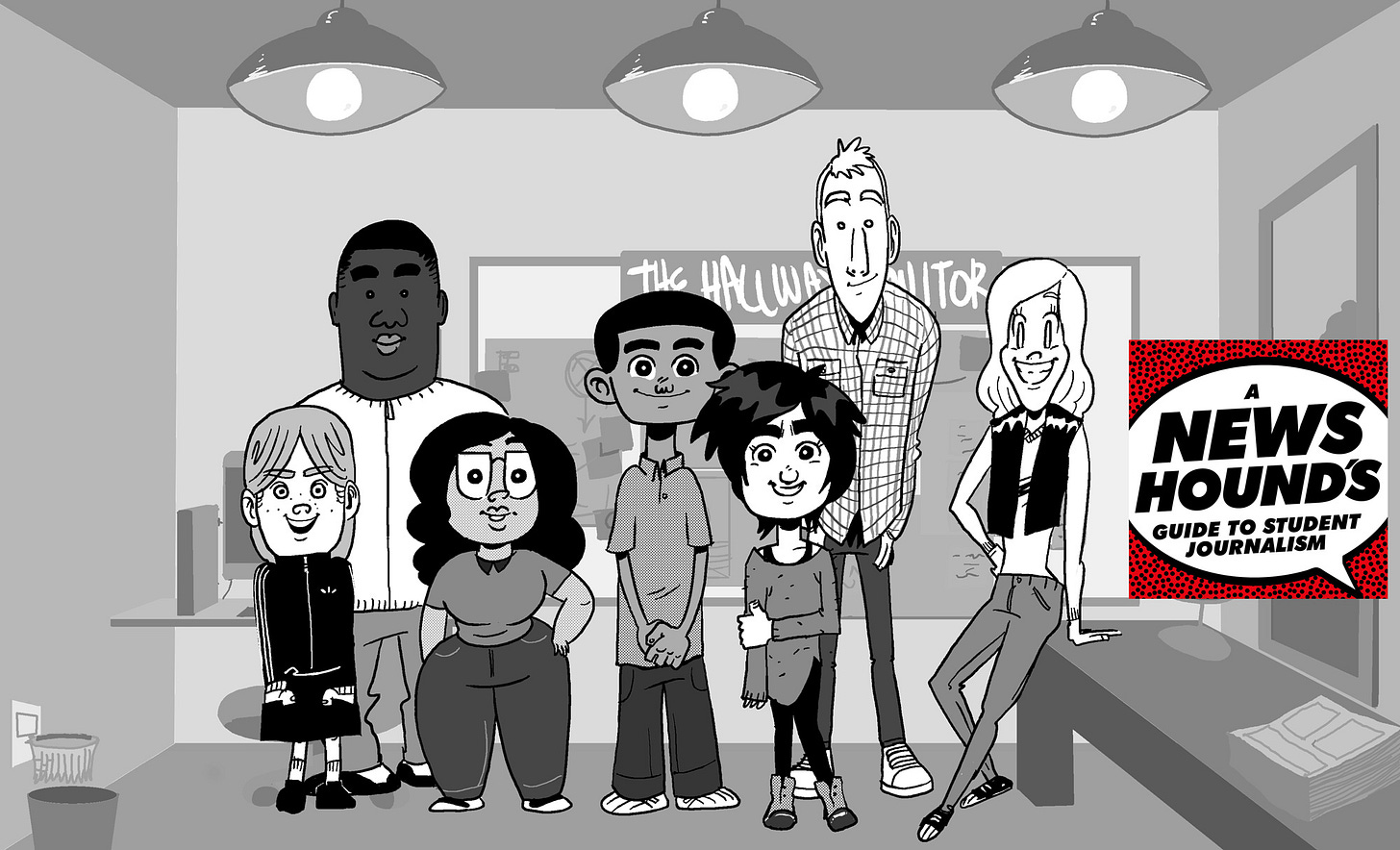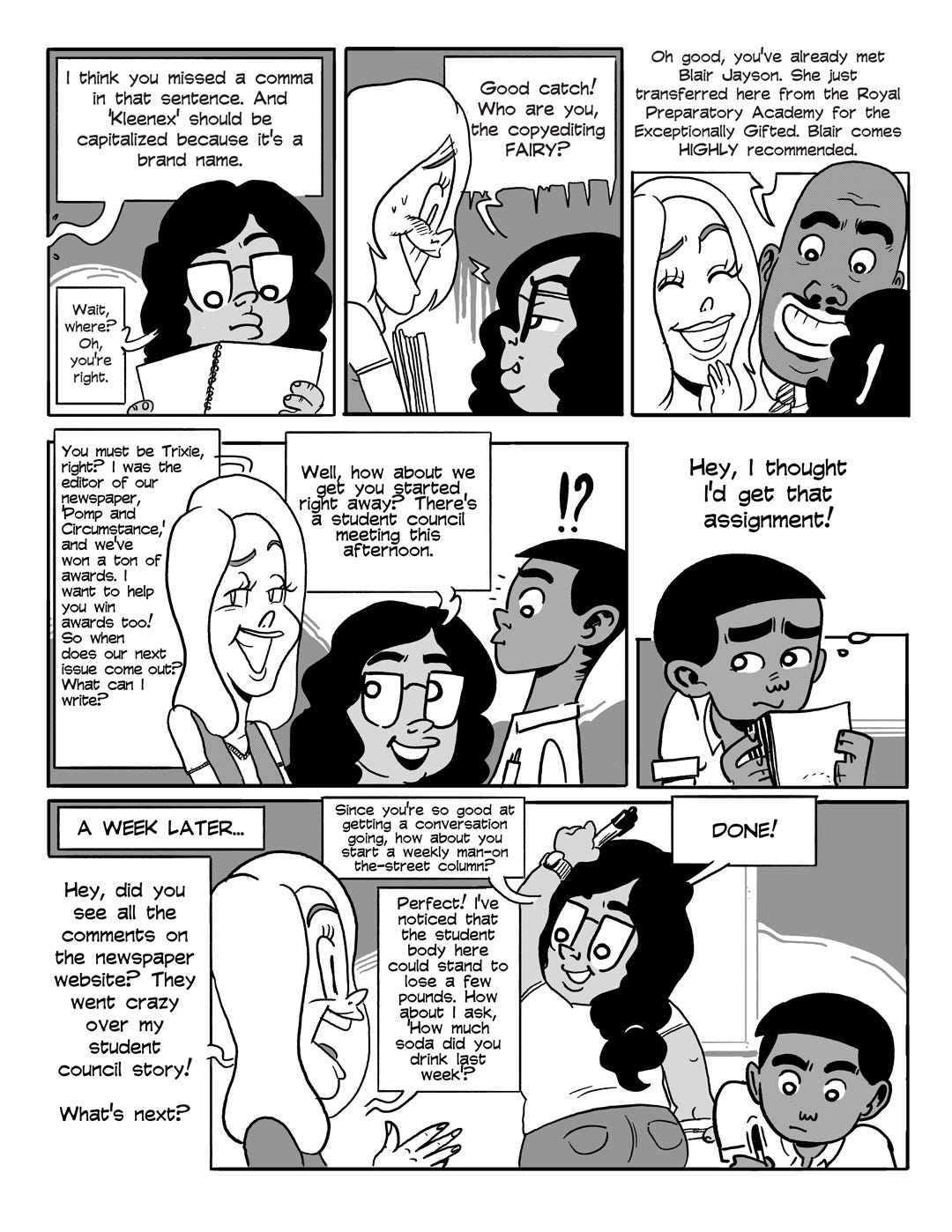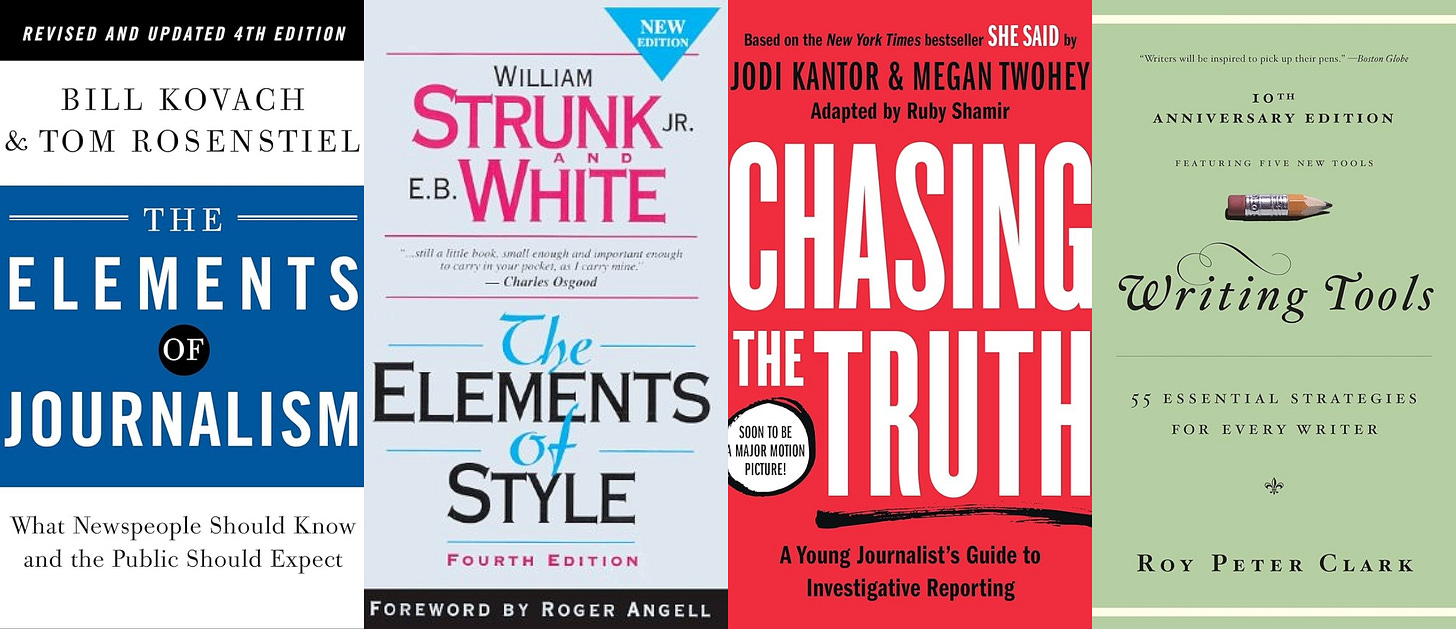4 must-read books for student journalists
Author discusses comic for young journalists that ‘meets them where they are’

Recognizing a gap between academic and professional journalism, a longtime journalism educator wrote a book to equip students with the skills for professional publishing.
“From what I saw of the information that was available for them, the resources, it wasn’t speaking to that group,” said Katina Paron, an author and journalism curricular developer at Craig Newmark Graduate School of Journalism.
Rather than adopting a traditional instructional format, she opted for a more unconventional approach: a comic book.
First published in 2018, “A NewsHound's Guide to Student Journalism” takes a comic-styled format, featuring characters from diverse backgrounds. A new edition came out a few weeks ago.
The characters navigate ethical dilemmas and challenges typical of a high school newspaper. The book covers various topics, including conflict of interest, plagiarism and writing for different audiences.
It tackles journalism ethics through scenarios like a reporter grappling with a conflict of interest involving her father's role in a school construction project, leading to the editor's decision to reassign the story.
Paron said this issue comes up a lot in student newsrooms that are covering the war in the Middle East regarding who’s allowed to tell what story, how close is too close and the questions of bias and objectivity.
“All these things that happen in mainstream newspapers also happen to the characters in this book as a learning lesson for the teens and for all readers,” Paron said.
One significant theme addressed in the book is plagiarism. Through the character Blair Jason who makes up quotes and characters, readers witness the consequences of unethical behavior in the profession.
Paron's book emphasizes common mistakes reporters make to underscore that errors are an “integral part” of the learning process.
“I hope young people (know) when they're reporting their first, second, third stories, if they're learning every single step of the way and all because they make a mistake, it doesn't mean that they can't or won't be a journalist,” Paron said.
Given the unconventional style of the book, Paron said she had a “freaking-out” moment before she sent final edits to the publisher.
“It was a moment that I didn’t know how well it would be received,” she said. “I’ve heard since it’s been published the numbers have (gone up) every year … people are really grateful to have a resource like this.”
She encouraged teachers and youth media programs to use the book because “it meets them where they are.”
Student journalists, she noted, often need to shy from certain habits, like relying on essay-style writing, employing SAT-level vocabulary and crafting introductions and conclusions differently.
“It’s a challenge,” Paron said. “The learning curve could go from never having written a journalism story to writing your first story.”
I asked for books she thought student journalists should read. See below:
“The Elements of Journalism” by Bill Kovach and Tom Rosenstiel: “It’s not necessarily how to do journalism. It’s more of the why behind the philosophy. And it has a phrase that I use all the time when I’m teaching: ‘Journalism is a practice of verification.’ What we’re doing in journalism is verifying all the information that we report on as being true, and we are responsible for what we produce.”
“The Elements of Style” by William Strunk Jr. and E. B. White: “A classic book. Just kind of how to write directly and clearly. There’s a whole quote in there about omitting words that I use all the time.”
“Chasing the Truth: A Young Journalist's Guide to Investigative Reporting” by Jodi Kantor and Megan Twohey: “This is an amazing instructional book on investigative journalism. It's written in a teaching way. You can learn from them. It goes through the kind of decisions that they made and why they made them. And then at the end, which I think is the most valuable part, they have an annotated article. They took the article they published about it and then annotated it, and that's such an incredibly useful tool for writers and reporters.”
“Writing Tools: 55 Essential Strategies for Every Writer” by Roy Peter Clark: “There's a mix here of learning how to write clearly, effectively, how to do journalism in the way that it was meant to be.”
Attention Journalism Educators:
The Nutgraf is working on a story compiling advice from journalism educators for their students amid the current state of the media industry with layoffs dominating news cycles. If you’re interested, please fill out this short form.
Story Spotlight:
Startup news leaders tell journalism students how to get that first job (Media Nation by Dan Kennedy): Get as much experience as you can in a variety of subjects. Avoid private equity/hedge fund-owned media at all costs. Be willing to invest in themselves. And more from editors at the New Haven Independent, The Colorado Sun, The Concord Bridge, the Dorchester Reporter and VTDigger, among others.
Featured Opportunities:
CBS stations have several summer internship openings in Miami, Boston, Pittsburg, Philadelphia, Chicago, Los Angeles, Denver and Minneapolis.
Poynter is hosting a panel on what they don't teach in j-school on April 1.
America Needs You, a two-year program that empowers low-income, first-generation college students, accepts applications until April 1.
The Hearst High School Media Internship at the Paley Center for Media’s application is open until April 5.
For those in New York, register for this free journalism panel on April 12 featuring Bob Woodward (WaPo), Dick Tofel (ProPublica), Julie Pace (AP), Dean Baquet (NYT) and Christiane Amanpour (CNN).








